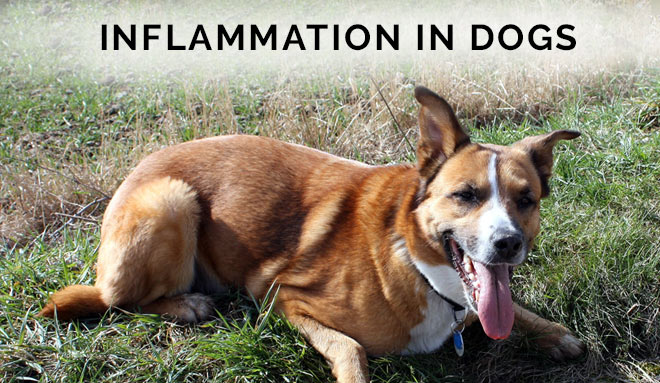At some point in time dogs of all kinds will experience inflammation and this occurs for a number of reasons. Inflammation in dogs can be acute or chronic, mild or severe depending on the type of inflammation. There are hundreds of inflammations that can affect your canine friend but we will be looking at the common ones.
Types of Inflammation in Dogs
The following types of inflammation can cause discomforts to your furry pal. Proper care must be taken to lower the risk of such problems.
#1. Arthritis
This is one of the most common types of inflammation and largely affects older dogs. Here, the joints get filled with inflammatory substances and extra cells which causes irritation, joint swellings, cartilage wear and tear, stiffness, and pain.
#2. Asthma
This type of inflammation is caused by the actions of the inflammatory cells like eosinophils, macrophages, neutrophils, T- lymphocytes, etc. Symptoms include coughing, difficulty in breathing, tightening up of the chest, and wheezing.
#3. Conjunctivitis
Such inflammation occurs due to the conjunctiva of the dog’s eye where the white part of the eye turns red and the surrounding areas are swell up. Symptoms of Conjunctivitis are watery eyes, redness in the eyeballs, squinting, discharge, swollen eyelids, etc.
#4. Dermatitis
This is an inflammatory, chronic skin disease that is related to skin allergies and is the second most common type of skin problems. These allergic reactions are generally transmitted by harmless substances like house dust mites, grass and other environmental allergens.
#5. Glomerulonephritis
This is a type of kidney disease centered around the glomeruli (a tiny ball of coiled blood vessel) that allows the blood in the kidney to be filtered of toxins and waste products into the urine. They can possibly get inflamed when large boluses of immune complexes get trapped which leads to more and more immune elements responding.
#6. Pancreatitis
This kind of inflammation is caused by pain in the pancreas with the condition often recurring during the pet’s life. Pancreatitis mainly affects overweight or middle-aged dogs.
#7. Inflammatory Bowel Disease
Problems in bowel movements and the stomach can lead to inflammatory bowel disease. Abdominal pain, vomiting, long-term diarrhea and weight loss are all due to inflamed bowels.
#8. Inflammatory Joint Disease
They are generally caused by an infection (bacterial or fungal) or tick-borne diseases. Inflammatory joint disease is a type of arthritis which occurs due to a weak immune system.
Treating and Preventing Inflammation in Dogs
- Anti-inflammatory Foods – Food items such as berries (antioxidants), green leafy vegetables (rich nutrients) and fruits (betacarotene) go a long way in boosting the immune system which in turn helps to treat and prevent inflammation.
- Exercise – Another way to cure and prevent inflammation is by regular exercise. Take your pal for long walks and/or make him run around in the backyard. Exercise not only keeps the pet fit but lowers the risk of so many diseases.
- Natural Ingredients – Inflammation can also be treated naturally with the help of ingredients such as ginger, capsicum, turmeric, fish oil, essential oils like peppermint, lavender and cinnamon, etc.
- Supplements – You can opt for supplements as well. They provide all the necessary proteins, vitamins, calcium and minerals to treat and prevent inflammation.
Inflammation in dogs may not be a life-threatening disease but it is imperative to treat them as quickly as possible to avoid further problems. Preventing them is a much safer option than treating it. So keep your pal healthy and fit by following the preventative measures.

